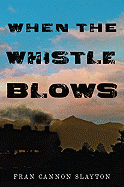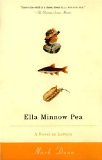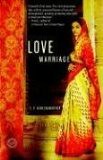For over 100 years, Oxford University Press has been publishing scholarly editions of major works. Prominent scholars reviewed and delivered authoritative versions of authors’ work with notes on citations, textual variations, references, and commentary added line by line—from alternate titles for John Donne’s poetry to biographical information on recipients of Adam Smith’s correspondence.
The post Devising data structures for scholarly works appeared first on OUPblog.
 A few weeks ago, Ben Mikaelsen came to our school as this year's visiting author. Ben was a delight, and I'll write more about his visit in another post, but for now, I want to concentrate on his philosophy about writing.
A few weeks ago, Ben Mikaelsen came to our school as this year's visiting author. Ben was a delight, and I'll write more about his visit in another post, but for now, I want to concentrate on his philosophy about writing.
"Writing," he said, "is storytelling."
Of all of the things that I got out of Ben's visit, and there were many, this simple sentence resonated with me in a way that I never would have expected. It stuck in my brain and kept tap, tap, tapping through my thoughts. You see, in some fantasy world of mine, I consider myself a writer. I always have, from the time I was very young, around seven or eight years old. It's all I wanted to do. Well, that and read.
So, why did the utterance of this sentence have such an effect on me? I think I figured it out. See, the thing is, as much as I love to write, I am not much of a storyteller. What Mr. Mikaelsen was talking about was just letting go of the notion that every word needs to be weighty and special and telling the story you want to tell. That has always been so incredibly hard for me. When I write fiction, I gnaw my knuckles over every syllable and twist of phrase. I get so caught up in trying to make every word the perfect word, I end up writing in nothing but fits and starts. Sometimes I even give up, thinking that it'll just never be perfect so why bother.
Even now, as I write this post, I'm stewing about words. How does one overcome that? Because I think Ben is absolutely right. The story is much more important than the words themselves. If you can tell a great story, you can get around to fixing the words later. Maybe in one of the fifteen full revisions that Ben says he does to each of his books!
I have actually written a book, a YA novel called The Power of Merit Ruhl, which took me two years to write. I'm proud of it. I had a story I wanted to tell, and I told it. But I agonized over words the whole time. Now, I want to try to tell more stories. I want to write a sequel to my book, and even make it into a series. I have the stories to tell, the arc for each of the four major characters, in my head. The question is will I be able to set aside my obssession with words and just tell the stories?
My favorite books tell really amazing stories. Donna Tartt's The Secret History is a good example of this. If you've never read it, go out right now and get yourself a copy. It's the story of a small group of friends at a private college who do a terrible thing and then have to hide their mess. This story left me breathless. There is one point of such delicious suspense that I practically ripped the book because I was holding it so hard. Another example of spectacular storytelling: Rebecca by Daphne duMaurier, a book that, though I've read it many times and even taught it, can still keep me enraptured to the very last page. I don't necessarily remember all of the fancy phrasing and uses of foreshad
Hey, all you reader guys, you get two reviews for the price of one today. The first is from that awesome reviewer Michael:
Rodney and Wayne: Cosmic Repair Boys, book 1 The Age Altertronby by Mark Dunn
Rodney and Wayne live in a town that has been taken over by an unidentified force and is trapped in a force field. The force gives the town unexpected tests to see how the residents will react. Lately, everything is peach colored (except the peaches). After that passes, Rodney and Wayne go to visit their old mad scientist friend who has made a time machine that he calls the Age Altertron. It malfunctions and sends everybody in the city from infancy to old age in just a few days. The old professor is now 115 and can't move! Will Rodney and Wayne be able to fix the Altertron before it's too late?
Thanks again, Michael! You find the coolest books.

The second review is from me, the
CARLMAN, and it's about another rare and wonderful book,
When the Whistle Blows by Fran Cannon
Slayton. It's a
very terrific book! It's hard to find enough good things to say about it. It's set in a real town,
Rowlesburg, West Virginia, although the characters are fictitious. The story traces young Jimmy Cannon's life from 1943-1949. Jimmy's family works for the railroad, as just about everybody else does in that small town, and
Jimmy's convinced that he'll drop out of school and work on the steam engines just like his older brothers. His dad won't have it because he thinks major changes are coming
that'll change
everything. Will Jimmy listen to his dad or not? You'll have to read to find out. And you'll be
really glad you did
because there are a lot of unforgettable stories here--the Halloween pranks at the cemetery, the meetings of The Society, how a new
principal tries to stop First Day, and the county championship football game. This is another one you'll want to read and reread throughout your lives, guys. DON'T MISS IT!!
One thing I noticed when doing my year end review was that last year, most of the adult books I read were nonfiction. I read very little adult fiction. I don't know why, that was just the way the cookie crumbled, I guess.
But, here are two adult fiction titles I did read:
Ella Minnow Pea: A Novel in Letters Mark Dunn
The island of Nollop lies just off the coast of the South Eastern US. It is named after Nevin Nollop, the man who discovered the pangram sentence "The quick brown fox jumps over the lazy dog." Citizens of Nollop are fantastically devoted to the English language. Things get interesting when letters start falling off the Nollop statue in town. Is is old fixative? Or is Nollop striking letters from our lexicon from beyond the grave? Those in town think it's Nollop working in mysterious ways, so certain letters, and any words containing them, are now outlawed.
Told in, fittingly, in letters (of the correspondence variety) we follow the path of the Nollopians as they lose more and more of their language and fight to make their council see sense.
It starts out as a light-hearted, humourous premis, but it becomes gripping as citizens get more and more desperate, as punishments for using the forbidden letters are harsh and rebellion is mounting. But not in a scary way.
Overall, I recommend. It's for adults, but there are lots of young adult characters and I think many high school students (especially those that are already readers) will enjoy it.
Love Marriage: A Novel V. V. Ganeshananthan
This is a really concise, sprawling family epic. The chapters are all short vignettes, and I mean really short, some are only a paragraph long, and none are over a few pages. And contained in these episodic jewels is Yalani, the American born daughter of two Sri Lankan immigrants, the first in their families to have a Love Marriage. When her uncle, a high-up in the Tamil Tigers is dying, he moves to Toronto with his daughter, who will have an Arranged Marriage. Yalani and her parents go to Toronto to care for him and it is there that Yalani starts researching her family, so we get the stories of all of her relatives in multiple generations. The narration jumps through time and sides and of the family, and much of it is also a girl trying to balance being American with being Sri Lankan and trying to make sense of the war.
Ganeshananthan's prose is amazing, though. I love the way she clues you into time and space, such as referring to her mother as "Vani not yet my mother" to signify the story takes place before she (Yalani) came on the scene. Her use of capitalization is also something that I savored. (This sounds pretentious, but it's not.)
Several small gems of chapters add up to make one lovely book.
Full disclosure: ARC provided by publisher through
LibraryThing's early reviewer program.






"The Hong Kong Connection" is a legal thriller about a gutsy female attorney who takes on high ranking International officials. It's a taut, rollercoaster of a ride from New York to Palm Beach to Washington D.C. to Hong Kong. The plot is expertly woven, the characters persuasive, and the dialogue snappy and spot on.
www.StrategicBookPublishing.com/TheHongKongConnection.html
I read "Ella Minnow Pea" last year around this time after one of those sites that purport to match you up with the perfect book (this one was based in the UK) decided that it would best fit my mood for something playfully intellectual nd intellectually playful, I suppose. I enjoyed it thoroughly. In a nice coincidence, I just read "Disreputable History of Frankie Landau-Banks" and "An Abundance of Katherines" back-to-back, not knowing on the way in that both would feature so much wordplay. It might be fun to put together a syllabus of YA and adult novels in which wordplay is central to the story ... Hmmmm ...